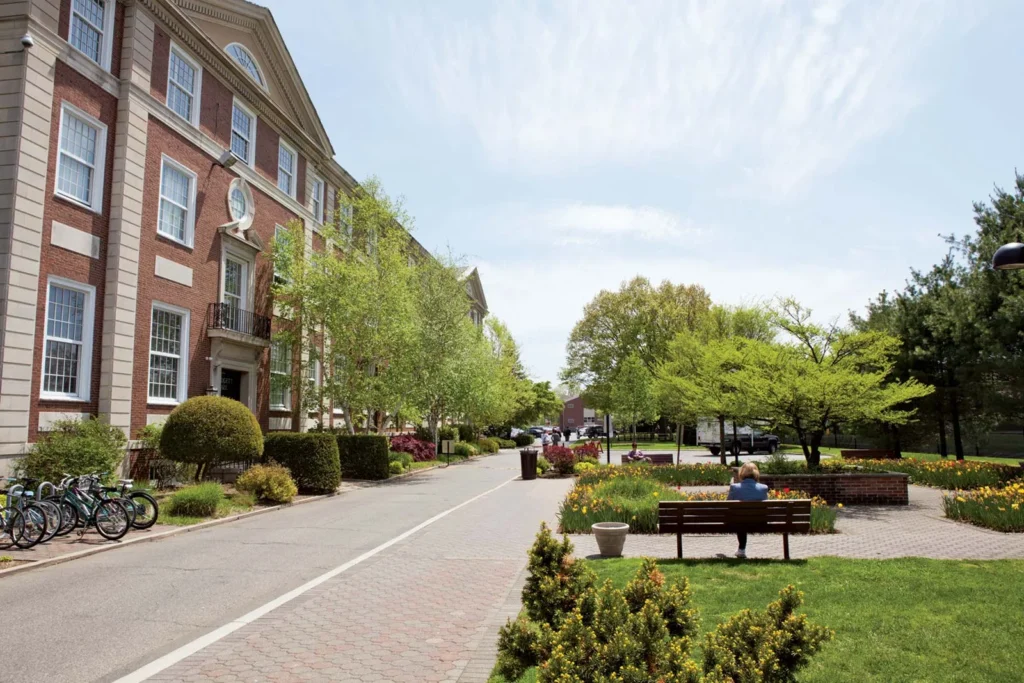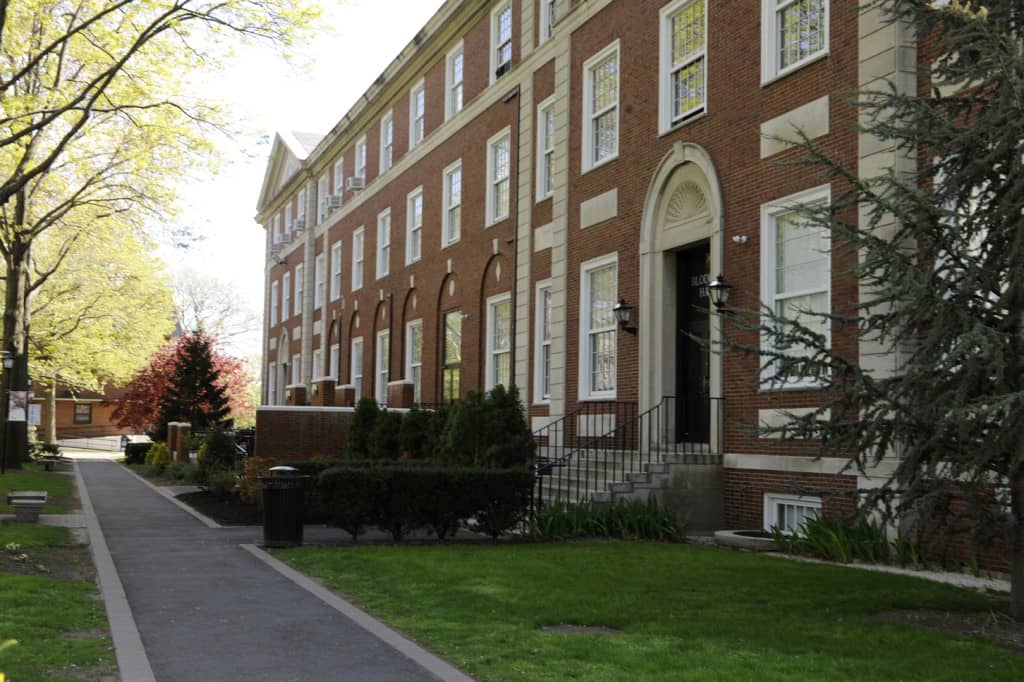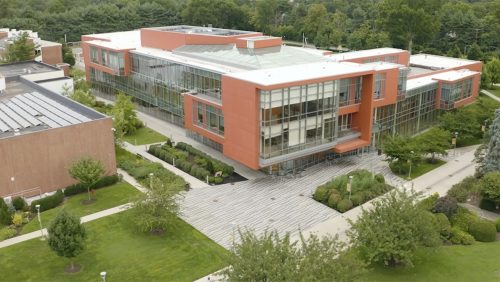Tucked away in the serene suburb of Garden City, New York, Adelphi University shines as a cornerstone of academic achievement and personal growth. Established over a century ago, this private institution has grown from humble beginnings into a dynamic university celebrated for its student-centered approach, pioneering research, and lively campus atmosphere. As of March 15, 2025, Adelphi stands tall as a leader in higher education, blending tradition with forward-thinking vision to inspire generations of learners.

A Journey Through Time
Adelphi University traces its origins to 1896, when it opened its doors as Adelphi Academy in Brooklyn, New York. The name “Adelphi,” meaning “brothers” in Greek, hinted at the institution’s early focus on building a tight community of scholars. Initially a preparatory school, it laid the groundwork for young minds eager to pursue higher learning.
In 1929, Adelphi evolved into a women’s college, a bold move that underscored its commitment to expanding educational access during a time when opportunities for women were scarce. By 1946, the institution relocated to Garden City, Long Island—a charming locale just a short drive from New York City—marking its shift to a coeducational university. This transition broadened its reach and set the stage for decades of growth.
Academics at the Core
The university faced its share of trials, particularly in the 1970s and 1980s, with financial struggles and administrative shifts testing its resolve. Yet, Adelphi emerged revitalized, its focus sharpened on academic excellence and student success. Today, that resilience defines its character, making it a model of adaptability in 2025.
Adelphi University boasts a diverse academic landscape, offering programs through eight distinct schools and colleges: the College of Arts and Sciences, the Gordon F. Derner School of Psychology, the Robert B. Willumstad School of Business, the College of Education and Health Sciences, the College of Nursing and Public Health, the School of Social Work, the Honors College, and the College of Professional and Continuing Studies. Whether students are drawn to the sciences, humanities, or professional fields like nursing or business, Adelphi provides a pathway to their goals.

The Gordon F. Derner School of Psychology stands out as a jewel in Adelphi’s crown. As one of the nation’s first independent psychology schools, it has built a legacy of excellence in training clinicians and researchers, cementing Adelphi’s prominence in the field. Meanwhile, the university’s small class sizes—supported by a 10:1 student-to-faculty ratio—ensure that learning is intimate and engaging, with professors serving as mentors rather than distant lecturers.
Adelphi keeps pace with the times by weaving innovation into its offerings. Its STEM programs, including emerging fields like artificial intelligence and biotechnology, equip students for the demands of a tech-driven economy. Interdisciplinary courses and hands-on research opportunities further enhance the academic experience, preparing graduates to tackle complex challenges with confidence.
Life on Campus
Adelphi’s 75-acre Garden City campus is a harmonious blend of history and modernity. Landmarks like Levermore Hall, with its elegant Georgian architecture, sit alongside cutting-edge facilities such as the Nexus Building and the Performing Arts Center. This mix creates an inviting space where students can thrive both intellectually and socially.
The campus buzzes with activity, thanks to more than 100 student organizations spanning everything from academic clubs to theater troupes. Adelphi’s location, just 23 miles from Manhattan, adds an extra layer of excitement, giving students easy access to the cultural and professional riches of New York City. Whether interning at a Fortune 500 company or catching a Broadway show, students benefit from this urban connection.
Sports are a unifying force at Adelphi, where the Panthers compete in NCAA Division II. Teams like men’s lacrosse and women’s soccer have racked up championships, fueling school spirit and showcasing the university’s dedication to holistic development. Beyond athletics, the roughly 25% of undergraduates living on campus enjoy modern residence halls, while commuter students—making up the majority—find a welcoming environment through tailored resources like shuttle services and dedicated lounges.
Impact Beyond the Classroom
Adelphi University is a hub of discovery and service, with faculty and students partnering on research that addresses real-world issues. The Breast Cancer Hotline & Support Program, launched in 1980 by the School of Social Work, is a prime example. Offering free support to those affected by breast cancer, it highlights Adelphi’s deep-rooted commitment to community well-being.
Sustainability is another priority, with eco-friendly initiatives like energy-efficient buildings and campus-wide recycling earning Adelphi a spot among the Princeton Review’s “Green Colleges.” These efforts reflect a broader mission to foster responsible citizenship among students.
Locally, Adelphi strengthens ties with Garden City and beyond through collaborations with schools, businesses, and nonprofits. Programs like the Adelphi Community Fellows place students in paid internships with regional partners, blending education with practical impact and enriching the Long Island community.

Alumni and Accolades
Adelphi’s influence extends through its alumni, who have left indelible marks across industries. Jonathan Larson, the visionary behind Rent, Chuck D of Public Enemy fame, and author Alice Hoffman are just a few names that highlight the university’s knack for nurturing talent. Their successes speak to Adelphi’s ability to inspire creativity and ambition.
The university itself enjoys consistent praise. In 2025, it ranks well in U.S. News & World Report for value and teaching quality, while its nursing program garners acclaim for its advanced facilities and healthcare partnerships. These honors affirm Adelphi’s status as a top-tier institution in the Northeast.
Adelphi Today and Tomorrow
As of March 15, 2025, Adelphi University remains a vibrant force, adapting to a shifting educational landscape while honoring its foundational principles. Recent years have seen growth in online learning, enhanced mental health support, and a renewed emphasis on diversity—all part of the Momentum 2 strategic plan. With about 7,500 students, including 5,000 undergraduates, Adelphi strikes a balance between a close-knit feel and a broad, inclusive community.
The student body, hailing from over 60 countries, mirrors the global diversity of New York. Adelphi’s future plans include new facilities, expanded research, and deeper community engagement, ensuring it remains a leader in shaping tomorrow’s thinkers and doers.
Conclusion
From its origins as a Brooklyn academy to its current role as a thriving university in Garden City, Adelphi University embodies a legacy of growth, resilience, and purpose. Its academic rigor, vibrant campus life, and societal contributions make it a place where students don’t just learn—they transform. In 2025, Adelphi continues to light the way, proving that education is not just about knowledge, but about building a better world.